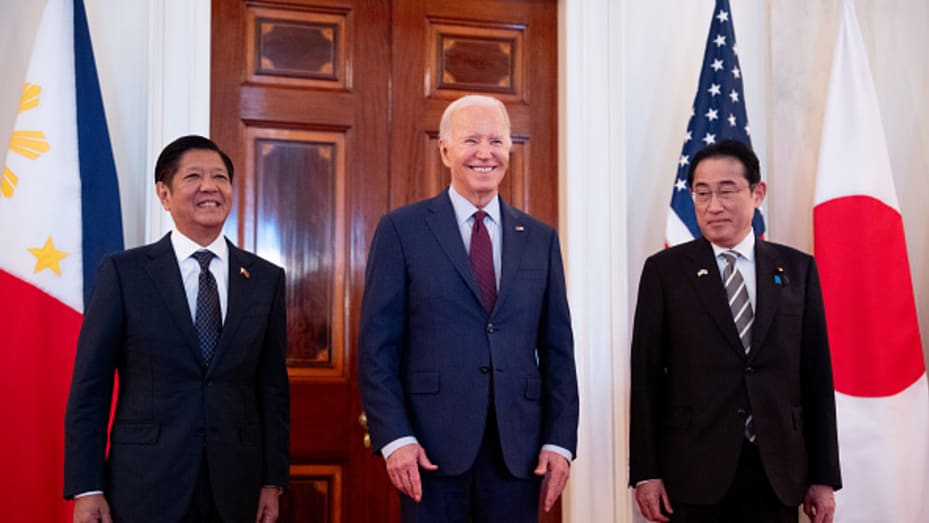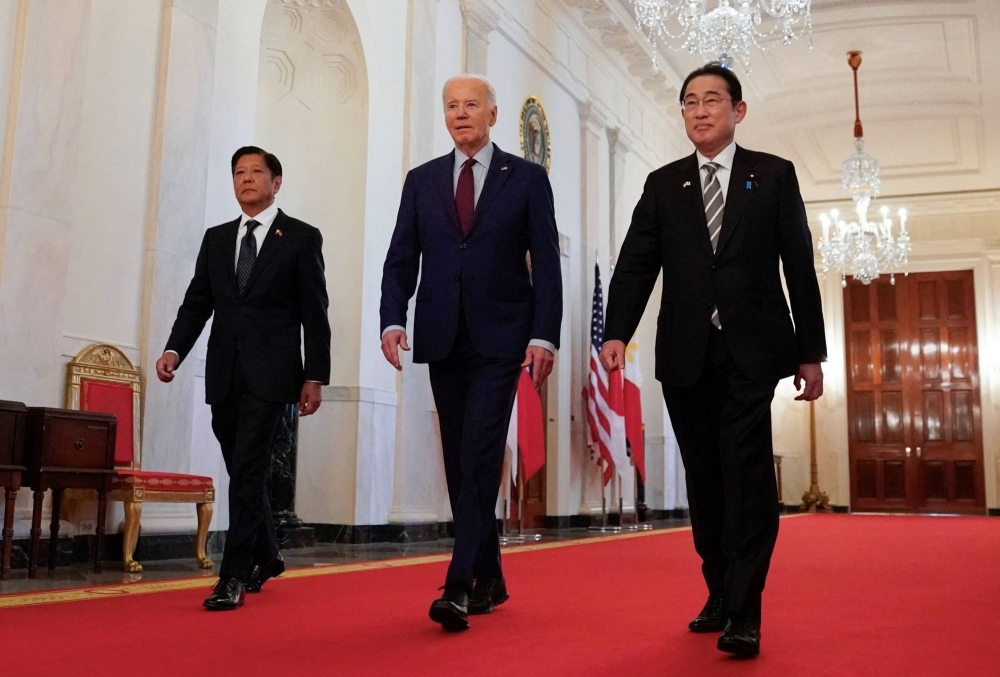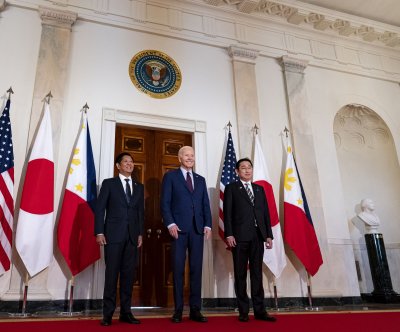President Joe Biden, alongside Japanese Prime Minister Fumio Kishida and Philippines President Ferdinand Marcos Jr., convened the inaugural trilateral summit aimed at fortifying alliances within the Indo-Pacific region. Central to the discussions was the reaffirmation of the United States’ unwavering commitment to both Japan and the Philippines in the face of China’s increasing assertiveness in the South China Sea.
Biden emphasized the solidarity among the three nations, stressing that unity is essential for shaping a prosperous future. A joint statement was issued, outlining collaborative efforts on various fronts, including clean energy, infrastructure development, emerging technologies, and maritime security.
One significant outcome of the summit was the launch of the Luzon Economic Corridor, designed to enhance connectivity between strategic points in the Philippines. This initiative aims to expedite investments in key infrastructure projects, such as rail systems, port modernization, agribusiness, and civilian port enhancements, particularly in Subic Bay.

Biden Meets Leaders from Japan and the Philippines in Trilateral Summit (Credits: CNBC)
Secretary of State Antony Blinken previously affirmed the Biden administration’s steadfast support for the Philippines, which drew a response from China, challenging the U.S. stance on maritime disputes in the region. The trilateral summit underscored the Biden administration’s commitment to revitalizing its network of alliances and partnerships worldwide, with a particular focus on strengthening ties in the Indo-Pacific region.
National Security Advisor Jake Sullivan characterized the summit as reinforcing a mutually beneficial network of partnerships in the Indo-Pacific aimed at countering coercion from China. The White House reiterated that the U.S.-Philippines mutual defense treaty encompasses the South China Sea, extending protection to the Philippine coast guard and other vessels operating in the area.

Biden Meets Leaders from Japan and the Philippines in Trilateral Summit (Credits: The Japan Times)
The summit not only addressed security assurances and military collaboration but also tackled vital infrastructure projects like the PGI Luzon corridor. PGI corridors, as defined by the State Department, concentrate on interconnected regions with comprehensive investments in various sectors to spur significant economic development.
The Indo-Pacific’s first PGI corridor will link Subic Bay, Clark, Manila, and Batangas in the Philippines, focusing on enhancing ports, rail networks, clean energy, semiconductor production, and supply chains. Defense and security cooperation remains pivotal, with the summit reinforcing support for the Philippines through initiatives like the Enhanced Cooperation Defense Agreement, including additional foreign military financing.
Furthermore, the summit highlighted ongoing efforts by Japan, Australia, and the United States to establish an integrated radar and sensor network to bolster ballistic and air defense capabilities in the Indo-Pacific. President Marcos Jr. faces pressure from China’s aggressive maneuvers within the Philippines’ exclusive economic zone, prompting continued coordination among the United States, Japan, and the Philippines to address China’s grey zone tactics and coercive behavior.























